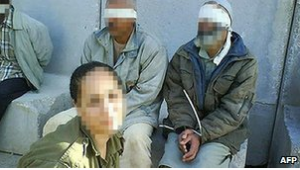In a country where the Queen has her own YouTube Channel, you would think Internet is a free and open space for all, but not exactly.
Because Jordanian authorities believe that “browsing the Internet is a waste of work time and a huge drain on public money,” 48 local news websites were recently blocked in all workplaces. Of the news websites blocked, both government endorsed Petra News Agency and Al Rai newspaper were on the list. The blogger behind The Black Iris of Jordan notes that of the 70 million websites explored during working hours, only 13,000 of those are relevant to the employees jobs. In light of these new online restrictions, the government even ordered “Internet café owners to install surveillance cameras.”

